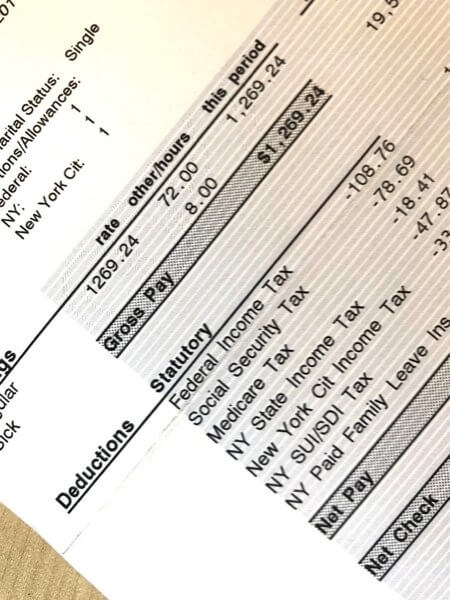By Naeisha Rose
City Comptroller Scott Stringer released a report last week on Black Women’s Equal Pay Day and revealed that the wage gap for this group compared to better paid white men in 2016 was the highest in the country.
According to the report released Aug. 5, black women working full-time lose over $1.2 million in earnings on average over a 40-year career.
The report, titled “Inside the Gender Wage Gap, Part I: Earnings of Black Women in New York City,” said black women working full time in the city made 57 cents for every dollar of a white, non-Hispanic man, which amounted to $32,000 on average.
The wage gap for black women in the city was larger than black women in the state and the United States, according to the report. In the city the wage gap was 43 cents, while in New York state the wage gap was 34 cents and nationwide it was 37 cents.
Black women would have to work an additional 30 years to attain the same earnings as their white male counterparts to close the $1,274,000 earnings gap, the report found.
The report also looked at the poverty levels of black women in 2016 and their educational attainment between 2010 and 2016.
Queens (14.2 percent) had the smallest poverty rate for black women and Manhattan (31.1 percent) had the largest, while the Bronx (27.9 percent), Staten Island (27.1 percent) and Brooklyn (23 percent) fell in between.
In 2016, 23.4 percent of black women and girls in the city lived in poverty, compared to 11.3 percent for white men and boys, and nearly twice the rate among white women and girls (12.8 percent).
Between 2010 and 2016, black women outpaced (14.5 percent) other women (10.9 percent) across racial and ethnic groups in attaining a bachelor’s and graduate degrees, as well as white men (9 percent).
Despite these higher college completion rates, the unemployment rate for black women was 11.4 percent in 2016, compared to 5.6 percent for white men. They obtained fewer jobs in management business, science, and arts occupations; sales and office occupations; natural resources, construction and maintenance occupations; and production, transportation, and material moving occupations.
The only sector where black women had more jobs compared to white men were in service.
The comptroller’s analysis of the wage gap for black women depicted it as hurting the economic security of black women, their families and the city.
The wage gap penalizes black women every year.
They lose around 20 months of child care for an infant, almost three-years’ worth of food for a family of four, nearly two-years’ worth of rent, which is the equivalent of more than a one-quarter down payment on a home, or a new car and the equivalent of 22 years worth of monthly MetroCards the wage gap for one year. Full-time four-year tuition at a CUNY institution is another loss for black women.
The report estimates that if the wage gap were closed, more than 350,000 black women working full-time in New York City would have collectively contributed around $11.2 billion to the local economy.
“In a city like New York that touts its progressive ideals, it is an outrage that black women in 2018 are still denied economic equality,” said Stringer. “As a city we’re failing to level the playing field for black women and denying them the opportunity to buy their own home, pursue more education, or have economic security.”
Reach reporter Naeisha Rose by e-mail at nrose



































